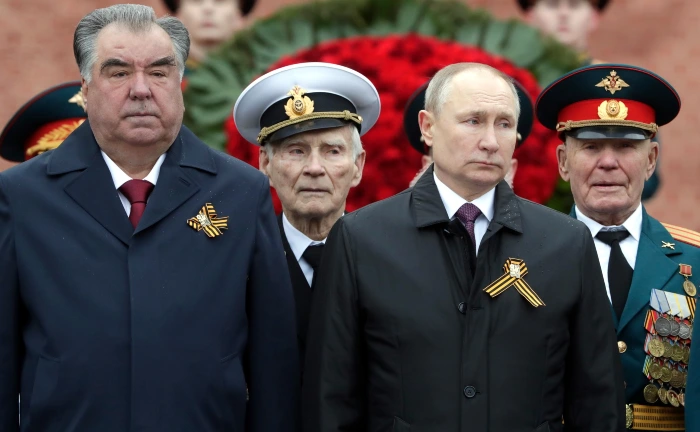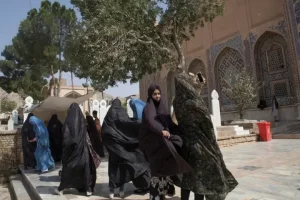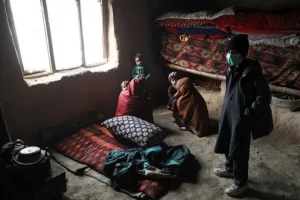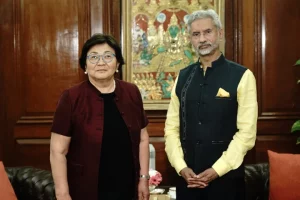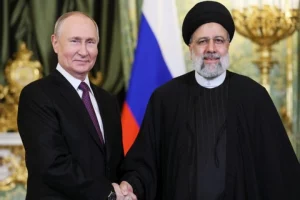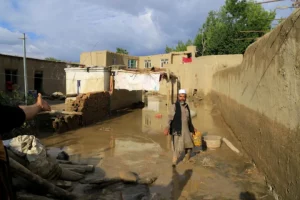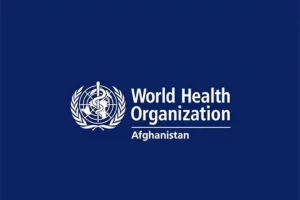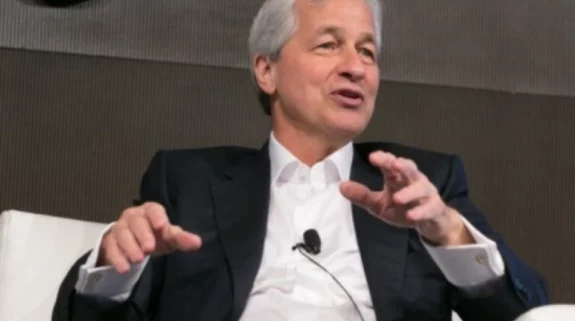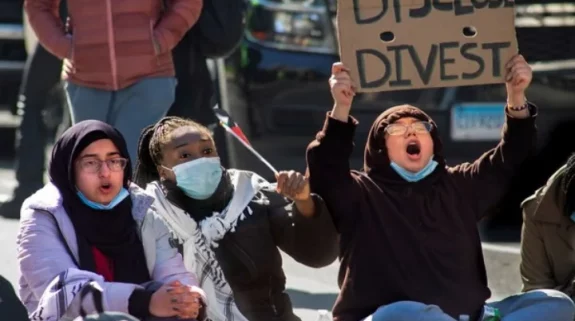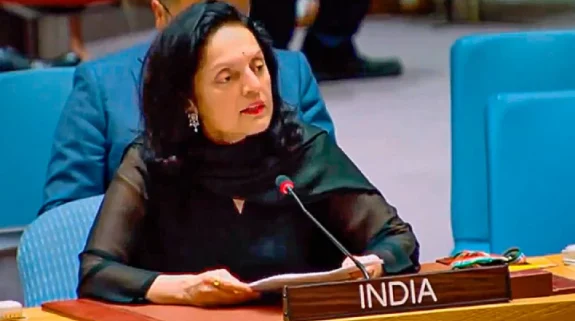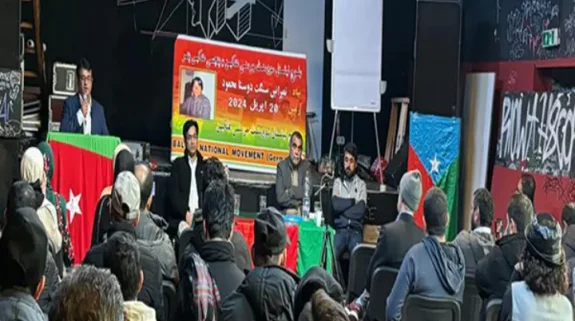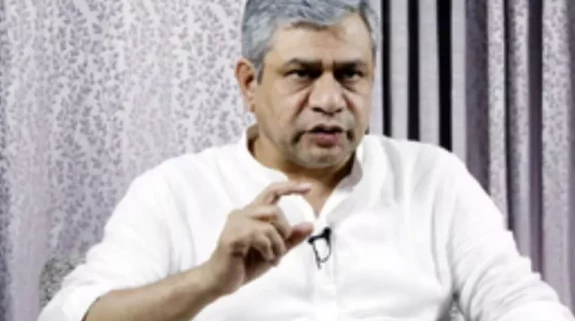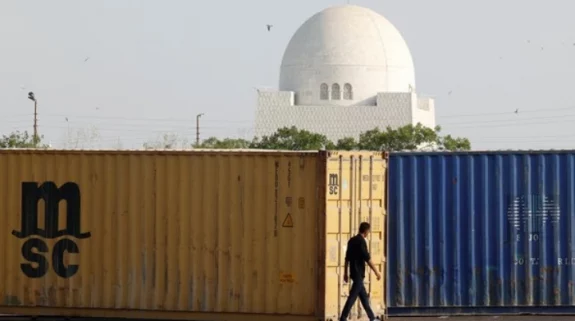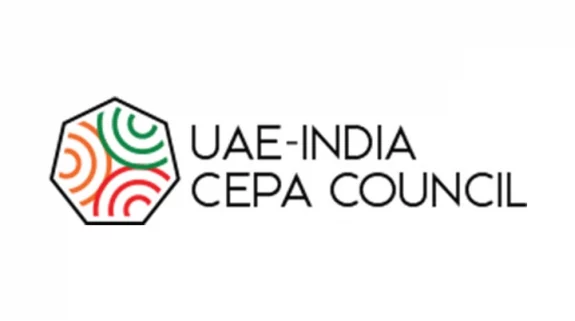A day after his foreign minister said that the geopolitical alignments in the region are not getting easier, Russian President Vladimir Putin has admitted that terrorists on the warpath from conflict zones in Syria and Iraq are being redirected to Afghanistan after the return of Taliban in Kabul.
"Militants with experience in waging war in Syria and Iraq are being drawn there. So, it is possible that terrorists might try to destabilise the situation in neighbouring countries, including the CIS countries, and go as far as starting to expand outrightly," Putin said at a meeting of Heads of Security Agencies and Intelligence Services from member-countries of the Commonwealth of Independent States (CIS) on Wednesday.
The Russian President's warning came just before a meeting of the Council of Foreign Ministers (CFM) of the CIS members kicked off in Minsk Thursday morning and less than 24 hours after Sergey Lavrov told a gathering of foreign ministers in Nur-Sultan that the Kremlin is concerned about many weapons and military equipment left in Afghanistan by the NATO members which could be used for destructive purposes. The CIS countries consist of Russia, Ukraine, Uzbekistan, Kazakhstan, Kyrgyzstan, Turkmenistan, Tajikistan, Azerbaijan, Armenia, Georgia, Moldova, and Belarus.
After initially expressing that the situation in Kabul under the Taliban is better than it was under Ashraf Ghani, Moscow had intensified efforts to eradicate the ISIS threat in Afghanistan, saying that its future policy on Kabul will depend on the readiness of the Taliban to honour their commitments.
Well aware of the fact that developments in Kabul may have a strong impact on the state of affairs in Central Asia, the South Caucasus and other regions, Putin said on Wednesday that neutralising potential threats emanating from Afghanistan is of particular importance for CIS security.
"The situation in Afghanistan is quite challenging, as you know. After the withdrawal of US troops, power passed into the hands of the Taliban, who are setting their own rules and regulations. However, a number of ISIS-associated international terrorist groups continue to operate in that country," he said.
These issues, he said, were discussed in detail at the Collective Security Treaty Organisation (CSTO) and the Shanghai Cooperation Organisation (SCO) Council of Heads of State meetings recently and will be further reviewed during the upcoming CIS summit as well.
"It is important to constantly monitor the situation on the Afghan border and to be ready to counteract the militants. To do so, it is important to coordinate the work of security agencies and, if necessary, conduct joint special operations, all the more so as you have a successful track record of working in this area, including as part of the CIS Anti-Terrorism Centre," Putin advised the CIS intelligence chiefs.
The CSTO countries have already vowed to use all resources available to ensure security of its member states after the security threats emanating from the territory of Afghanistan started directly affecting the situation in the Central Asian region.
It includes a series of large-scale military exercises which will kick off near the Tajikistan-Afghanistan border shortly.
Also Read: Russian military reaches Afghanistan's border ahead of major exercise in Central Asia
Expressing the need to effectively combat common threats, Putin said that the nations of the Commonwealth are linked by a common past, centuries-long experience of friendship and productive cooperation, and millions of intertwined human destinies.
As Russia continues to pay special attention to enhancing coopearation and economic integration of the CIS members, Putin also warned that the process may be hindered from outside forces.
"I would like to note that integration processes are moving forward in the Commonwealth space. Trade, investment, financial and transportation flows are growing in scale and intensity. We have to understand that this productive work – using our competitive advantages and combining our capacities to meet common challenges – is meeting with a mixed response, sometimes a desire to interfere and trip us up," he said.
The territory is also Russia's traditional foreign policy priority as Moscow's initiative of forming Greater Eurasian Partnership has become established as a concept of long-term political and diplomatic efforts.
Russia has been making efforts to enhance CSTO collective security, promoting the EAEU economic integration and ensuring its participation in the G20, BRICS, the SCO, the Arctic Council and other advanced multilateral associations.
"Moscow is clearly concerned about Taliban linkages with other terrorist groups as well as continuing terrorist activities in Afghanistan. It is also worried about possible expansion of these activities in Central Asian republics. But its approach is to deal with the Taliban directly, Proffesor Gulshan Sachdeva, Chairperson of the Centre for European Studies at the Jawaharlal Nehru University in New Delhi tells IndiaNarrative.com.
"Over the years, Moscow has established significant linkages with the Taliban leadership. In fact, Taliban will be visiting Russia soon for the third Moscow format consultations," he added.
The CIS countries have been aiming at strengthening cooperation in the law enforcement, military and cultural areas as well as promoting the member countries' positions on the global stage.
Besides exchanging views on topical issues of the international agenda and adopting a joint statement on Strengthening the Convention on the Prohibition of Biological and Toxin Weapons, the CIS foreign ministers will today at Minsk discuss extensively the "incessant attempts" being made to falsify history of the region.
The Russia foreign ministry said that the ministers will approve the Regulation on the International Association (Commission) of Historians and Archivists of the CIS countries, the main tasks of which will be an objective and impartial assessment of the events of their common past, promoting access to archival documents and coordinating the work of scientists.
Also Read: Central Asia frontline unites to confront Taliban on the Tajik-Afghan border






